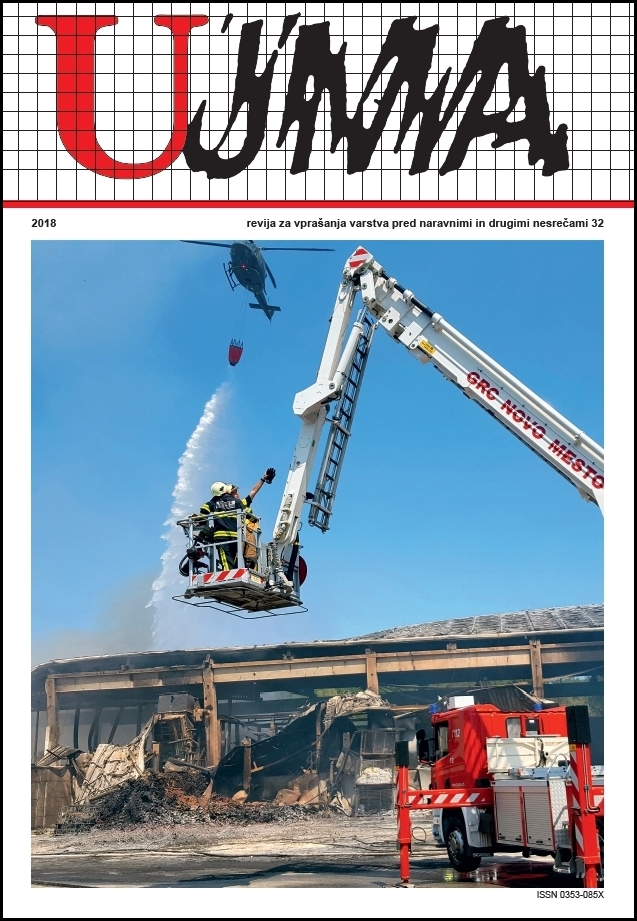GENERAL KNOWLEDGE OF HEAT STRESS AND POSSIBLE MEASURES
Abstract
Global warming represents new social challenges, as high temperatures in the summer months are already causing problems for more vulnerable and at risk groups of people. In this study, we researched the public’s general knowledge of heat waves, the warning system, the perception of people’s own sensitivity to heat, and the sense of the rise in temperatures in Ljubljana in recent years. We conducted a survey of 96 passers-by in front of various shopping centres in the summer of 2017. The majority of them knew about the heat wave warning system, or had at least heard of its existence; their information was mostly gained from television. Less than half of them were familiar with workplace measures. The elderly, people taking medications, and young children were recognized as sensitive groups, but only a fifth of respondents also thought of physically active people. The most commonly known symptoms of heat stress were weakness, fatigue and dizziness. To prevent heat stress, the majority first think of retreating to cooler places, followed by increased fluid intake. More than three-quarters of the participants observed that air temperatures have been rising in recent years, and about a third of them identified themselves as very sensitive to heat. We can conclude that, due to the increasing, more intense heat waves, people should be more aware of the problems and possible solutions.
References
Agencija RS za okolje (ARSO), 2008. Vremenski opozorilni sistem. https://www.meteoalarm.eu/sl_SI/0/0/SI-Slovenija.html
Åström, D. O., Schifano, P., Asta, F., Lallo, A., Michelozzi, P., Rocklov, J., Forsberg, B., 2015. The effect of heat waves on mortality in susceptible groups: A cohort study of a mediterranean and a northern European city. Environmental Health, 14, 30.
Gil Cuesta, J., van Loenhout, J. A. F., da Conceição Colaço, M., Guha-Sapir, D., 2017. Population Knowledge about Extreme Heat: A Cross-Sectional Survey in Lisbon and Madrid. International Journal of Environmental Research and Public Health, 14, 122.
Ključevšek, N., Hrabar, A., Dolinar, M., 2018. Podnebne podlage za definicijo vročinskega vala. Vetrnica, 10, 44–53.
Kosonen, R., Tan, F., 2004. Assessment of productivity loss in air-conditioned buildings using PMV index. Energy Build, 36 (10), 987–993.
Van Loenhout, J. A. F., Guha-Sapir, D., 2016. How resilient is the general population to heatwaves? A knowledge survey from the ENHANCE project in Brussels and Amsterdam. BMC Research Notes, 9, 499.
Downloads
Published
Issue
Section
License

This work is licensed under a Creative Commons Attribution-NonCommercial-NoDerivatives 4.0 International License.
The articles are made available to the public under Creative Commons Attribution-NonCommercial-NoDerivatives 4.0 International (CC BY-NC-ND 4.0).


